The RARE Advisor: You are a Cognitive Fiduciary
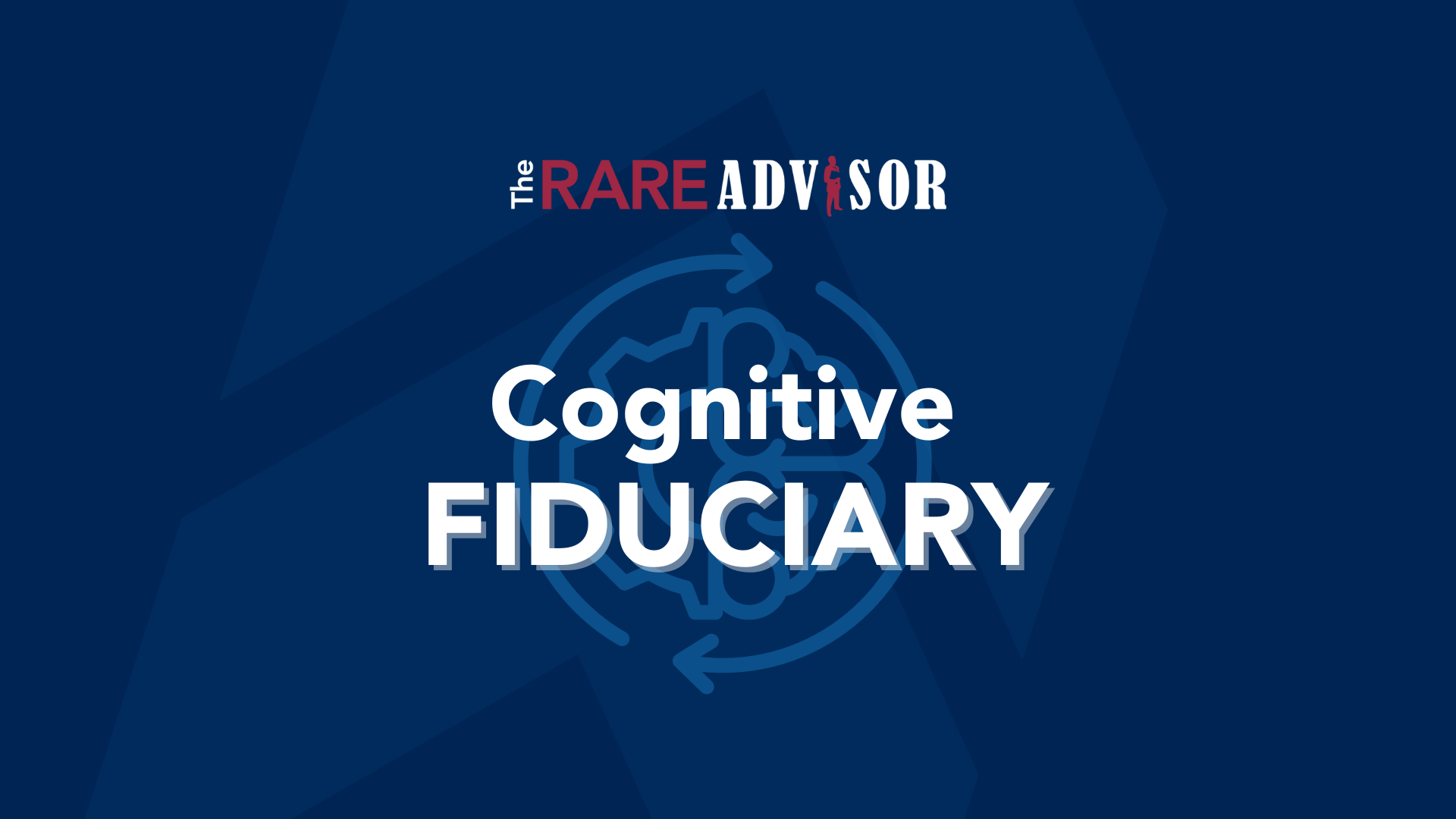
In this episode of The RARE Advisor, we’re going to talk about how an individual lost 97% of their overall net worth - and the financial advisors involved never thought to hit the brakes. This is just an extreme example that illustrates the liabilities that you must protect your customers from and yourself from as a financial advisor running a quality practice.
Hey, before we jump into the topic for today, I just want to remind you if you haven't gotten a copy of the 'Advisor's 12-Step Reset for Predictable Growth, Value & Lifestyle' yet, I would highly encourage you to take advantage of that - there's no strings, there's no obligations, it's just doggone good information that will help you run your practice into 2024 and beyond.
With that being said, today I want to talk about a very important topic. It's kind of a solemn topic, but nonetheless, an important topic because it can make or break your practice. There was an article published on December 11 in Bloomberg, and it was titled 'JPMorgan Is in a Fight Over Its Client's Lost $50 Million Fortune'. The bank is claiming that it was acting on an investor's best wishes to take risks, and his family and his doctors say that he was in fact slipping into dementia. Now, I don't normally read things to you, but I will read just these three introductory paragraphs to the article:
"By the time Peter Doelger signed the paperwork to have JPMorgan Chase & Co. handle his fortune, he had built a company spanning the US, sold it to a conglomerate and bet the proceeds on stocks and oil, beating the markets.
By 78, he said he was worth at least $50 million. And, according to his family, he was starting to show signs of dementia.
What followed over the next half-decade was an almost total wealth wipeout, as Peter's wife, Yoon, said they increasingly depended on JPMorgan's advice for managing their portfolio, only to watch it lurch ever closer to zero. They ended up with $1.5 million, selling their Boston condo and moving in with relatives."
The reason I bring this up to you today is because you are a cognitive fiduciary, whether you realize it or not - either through the fiduciary side of the assets under management (AUM) business, or through the best interest side of the registered rep side of the business. You are truly acting as a fiduciary or very close to it. And you're anticipated/expected to identify cognitive slippage. And this is super important because when a customer is sliding into such things, especially in this extreme example - and I don't know the whole story of what was going on between this couple and JPMorgan, go check out the article yourself. I'm not throwing any mud at JPMorgan - what I'm doing is talking and pointing out to you how this can happen to anyone in the industry. And you need to know your customer, you need to be able to identify and notice when there are problems, bring that to someone's attention, and protect yourself appropriately. Be strong enough to stop transactions. If you're affiliated with a broker-dealer or corporate IRA, contact the home office and get those transactions stopped when they need to be. There are rules and regulations there to support you in this category. Talk to your compliance department. But nonetheless, you have to be aware and you have to be on the lookout for this.
So, even if a client is pushing you saying "this is what I want to do", if you believe there's cognitive decline there, it is your duty to back off of that transaction. Hit the brakes, pause, and talk to someone in the compliance arena to make sure that you're dotting your I's and crossing your T's if you are moving forward with that. Or, even if you're not, you need to make sure that you're doing the right thing and stopping someone from making a transaction. You are considered a financial gatekeeper. And many financial advisors are not acting in that capacity, which then creates a huge amount of liability for their practice. Again, I don't know the whole story here and I won't pretend to. But something like this cannot just kill a career, it can take down a business. So even if it's a sub-advisor of yours, they could they could wipe out your practice, depending on how things are structured and how far it goes. Now, assuming these first three paragraphs are accurate, this gentleman lost $48.5 million dollars in five years, and no one thought to hit the brakes. These are vital issues in today's environment. If you've done Firm Element CE, if you've done Regulatory CE, you've probably gone through courses on cognitive decline and the steps you're supposed to take as an advisor.
I can't stress enough that you actually take that to heart. Just as we want to protect people as they move into retirement. Just as we want to help them and aid them and protect them during their retirement from a financial perspective. This falls under those protections. We have to help people in these situations. Do your best, be a RARE advisor, and all will be well.
--
The RARE Advisor is a business model supercharged by Recurring And Repeatable Events. With more than thirty years of working with and coaching successful advisors, host Mike Walters (along with other leaders in the industry), discusses what it takes to grow a successful practice. With the aim of helping financial professionals and financial advisors take their business to the next level, Mike Walters shares insights and success stories that make a real impact. Regardless of the stage of your practice, The RARE Advisor will provide thoughtful guidance, suggestions for developing systems and processes that work, and ideas for creating an authentic experience for your clients.
The RARE Advisor is also a podcast! Subscribe today via Apple Podcasts, Google Podcasts, or your preferred podcast listening service for easier on-the-go listening.
Author Info
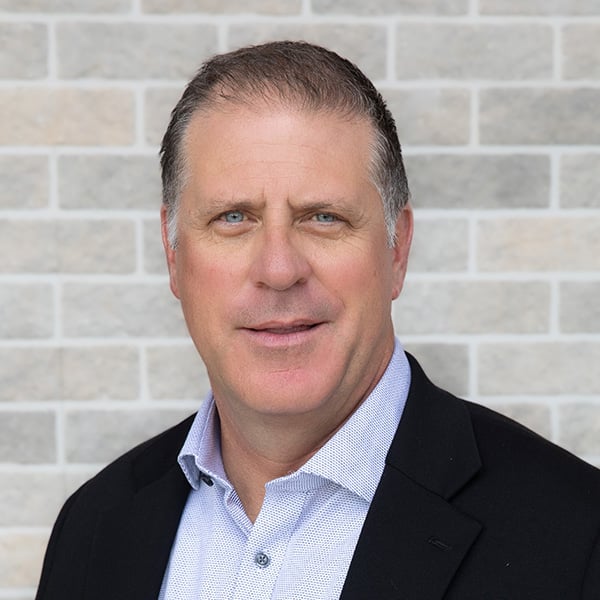
Mike Walters is the Chief Executive Officer (CEO) of USA Financial, leading the firm since its inception in 1988. Mike is committed to...
Related Posts
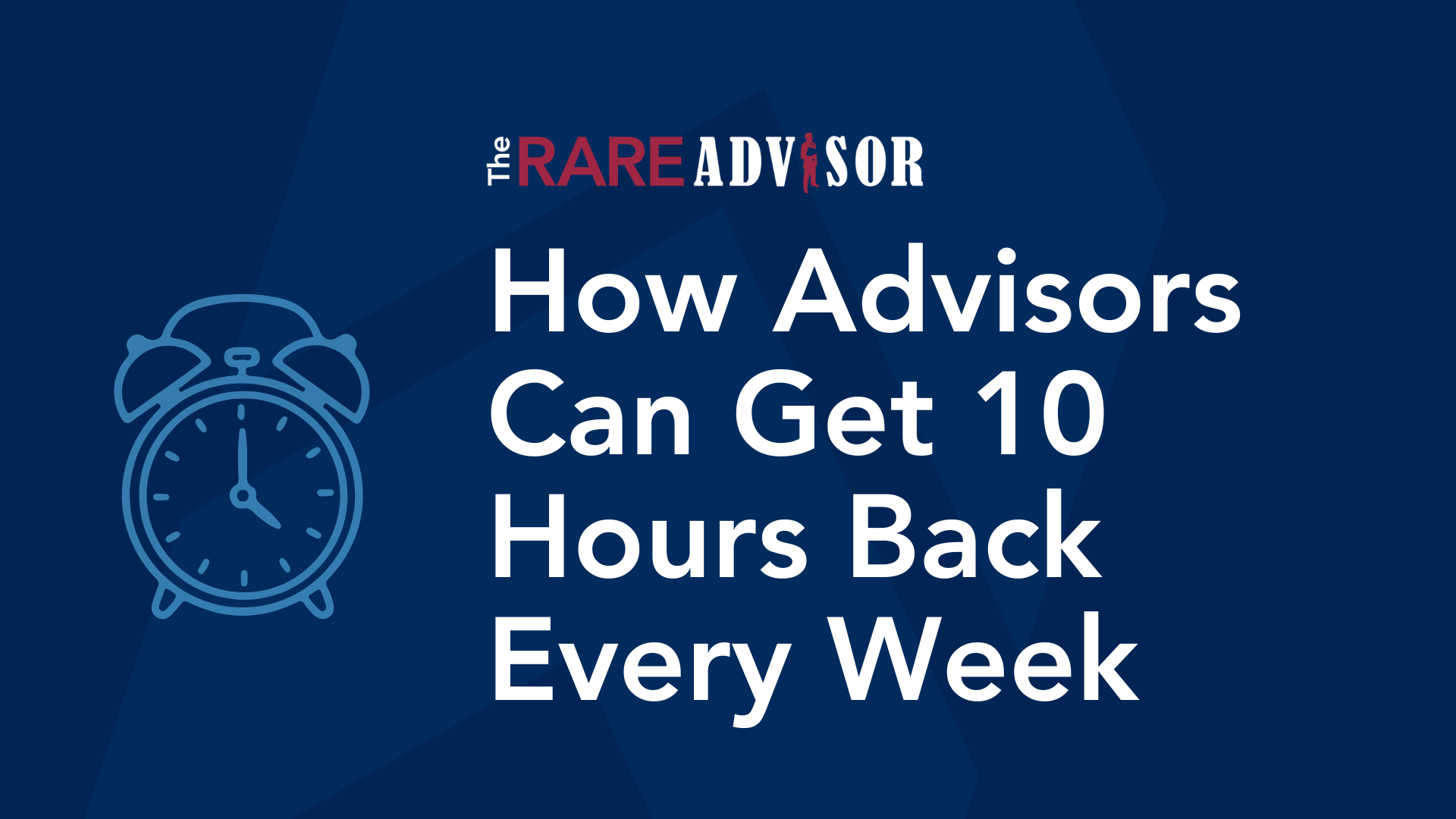
How Advisors Can Get 10 Hours Back Every Week
In this episode of The RARE Advisor, host Aaron Grady and USA Financial Pareto coach and Practice Management Consultant Allan Oehrlein dive into time allocation as a core lever for advisory success. They unpack the biggest time drains—email, unsolicited calls, and open-door interruptions—and lay out a practical framework for calendar rebalancing that starts with personal time, management time, client appointments, dedicated communications windows, “work on the business” time, and high-impact growth activities. With real-world stories showing how advisors shift from reactive days to structured weeks (and even reclaim Fridays), Aaron and Allan share easy-to-implement tips: color coding calendars, scheduling buffers, daily huddles, and call/appointment protocols. If you’re ready to audit your calendar, define your ideal week, and create structure that truly liberates your practice, this conversation is your next step.
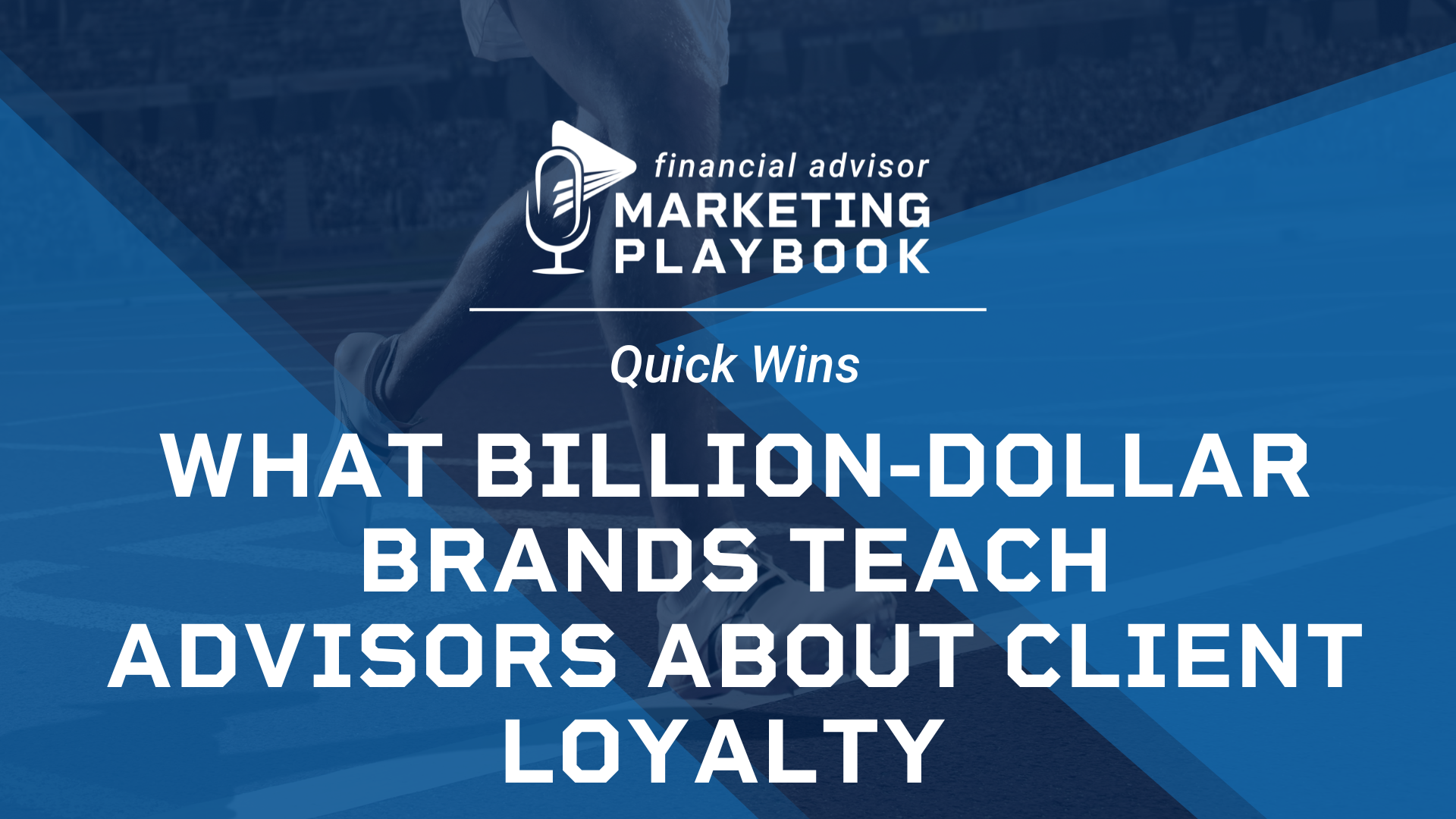
What Billion-Dollar Brands Teach Advisors About Client Loyalty
In this episode of the Financial Advisor Marketing Playbook, Mark Mersman explores what billion-dollar consumer brands like Peloton, Apple, Airbnb, Disney, and Starbucks understand about loyalty—and how financial advisors can apply these lessons to their own practices. Discover why loyalty is emotional, not transactional, and learn practical strategies to create belonging, simplify your process, showcase identity, design unforgettable experiences, and personalize client interactions. Tune in to transform your value proposition and build a community your clients never want to leave.
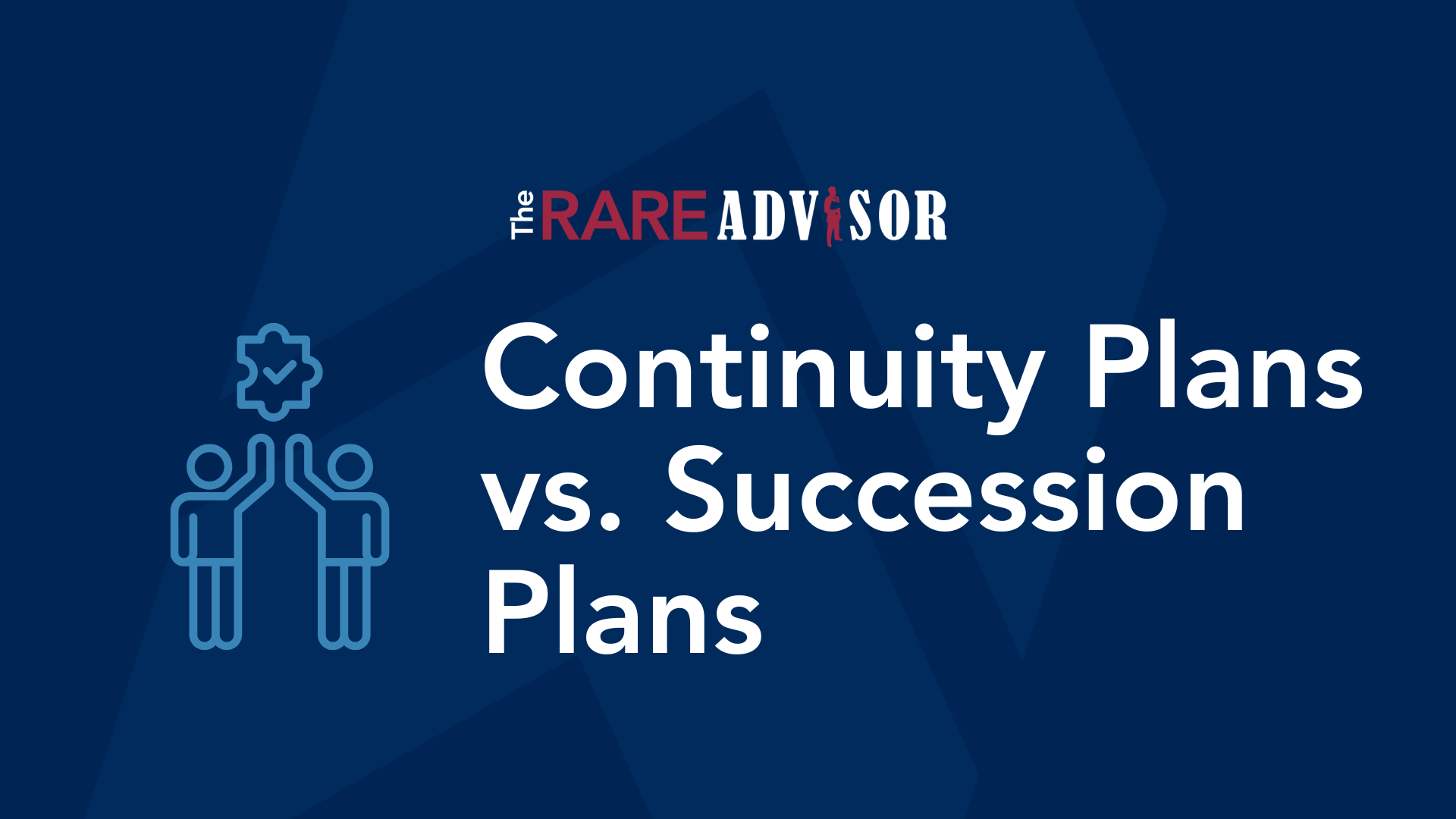
Continuity Plans vs. Succession Plans: Why Every Advisory Practice Needs Both
What’s the difference between a continuity plan and a succession plan—and why does your advisory practice need both? In this episode of The Rare Advisor, Aaron Grady breaks down these two essential strategies, explains how they protect your firm from unexpected events and prepare you for long-term success, and shares practical steps to start building or improving your plans. If you want to safeguard your business, elevate your professionalism, and protect your legacy, this episode is a must-watch.

How Advisors Can Get 10 Hours Back Every Week
In this episode of The RARE Advisor, host Aaron Grady and USA Financial Pareto coach and Practice Management Consultant Allan Oehrlein dive into time allocation as a core lever for advisory success. They unpack the biggest time drains—email, unsolicited calls, and open-door interruptions—and lay out a practical framework for calendar rebalancing that starts with personal time, management time, client appointments, dedicated communications windows, “work on the business” time, and high-impact growth activities. With real-world stories showing how advisors shift from reactive days to structured weeks (and even reclaim Fridays), Aaron and Allan share easy-to-implement tips: color coding calendars, scheduling buffers, daily huddles, and call/appointment protocols. If you’re ready to audit your calendar, define your ideal week, and create structure that truly liberates your practice, this conversation is your next step.

What Billion-Dollar Brands Teach Advisors About Client Loyalty
In this episode of the Financial Advisor Marketing Playbook, Mark Mersman explores what billion-dollar consumer brands like Peloton, Apple, Airbnb, Disney, and Starbucks understand about loyalty—and how financial advisors can apply these lessons to their own practices. Discover why loyalty is emotional, not transactional, and learn practical strategies to create belonging, simplify your process, showcase identity, design unforgettable experiences, and personalize client interactions. Tune in to transform your value proposition and build a community your clients never want to leave.

Continuity Plans vs. Succession Plans: Why Every Advisory Practice Needs Both
What’s the difference between a continuity plan and a succession plan—and why does your advisory practice need both? In this episode of The Rare Advisor, Aaron Grady breaks down these two essential strategies, explains how they protect your firm from unexpected events and prepare you for long-term success, and shares practical steps to start building or improving your plans. If you want to safeguard your business, elevate your professionalism, and protect your legacy, this episode is a must-watch.

